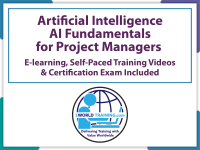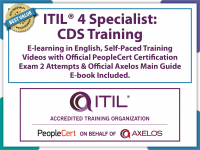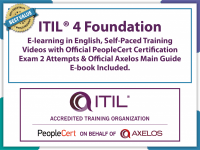Course Description
In today’s fast-paced business environment, Agile project management has become the gold standard for delivering successful projects on time and within budget. This introductory course will demystify Agile principles, equip you with the essential tools and techniques for iterative project management, and explore the growing role of AI in optimizing Agile processes.
Whether you’re a new project manager, a team member transitioning to an Agile environment, or simply seeking to understand the fundamentals of modern project management, this course will provide a solid foundation for your career growth.
Whether you’re a new project manager, a team member transitioning to an Agile environment, or simply seeking to understand the fundamentals of modern project management, this course will provide a solid foundation for your career growth.
Who Should Take This Course
- Aspiring or new project managers
- Team members working in Agile environments
- Professionals transitioning to Agile methodologies
- Anyone seeking to understand how Agile can improve project outcomes
Course Outline
Module 1: Introduction to Agile Project Management
- Agile Manifesto and core values
- Key differences between Agile and traditional (Waterfall) project management
- Overview of popular Agile frameworks (Scrum, Kanban, XP)
- Benefits and challenges of Agile adoption
Module 2: Core Agile Concepts and Practices
- Iterative development and the concept of “sprints”
- User stories and the product backlog
- Daily stand-ups, sprint planning, reviews, and retrospectives
- Prioritization and managing change in Agile projects
- Agile metrics and measuring success
Module 3: Agile Roles and Responsibilities
- Product Owner, Scrum Master, and Development Team roles
- Building effective Agile teams and fostering collaboration
- Managing stakeholders in an Agile environment
- Conflict resolution and decision-making in Agile
Module 4: Agile Tools and Techniques
- Kanban boards for visualizing workflow
- Burndown charts for tracking progress
- User story mapping for planning and prioritizing
- Agile estimation techniques (e.g., Planning Poker)
- Continuous integration and continuous delivery (CI/CD)
Module 5: The Role of AI in Agile Project Management
- AI-powered tools for backlog refinement, prioritization, and estimation
- Machine learning for predicting project risks and identifying bottlenecks
- Natural language processing (NLP) for analyzing user feedback and sentiment
- AI-driven chatbots for team communication and knowledge sharing
- Ethical considerations and the future of AI in project management
Module 6: Case Studies and Real-World Applications
- Analyzing successful Agile projects across various industries
- Identifying common pitfalls and how to avoid them
- Best practices for scaling Agile in larger organizations
Tips for continuous improvement and adapting Agile to your unique context






